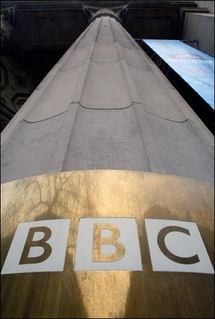
It will provide "high-quality accurate and impartial news, information and analysis from a global perspective," and "cover the political, social and cultural issues of interest to its diverse audiences," the BBC said.
"Our target is to get seven millions viewers by 2011 in Iran, Afghanistan and Tadjikistan," BBC World Service director Nigel Chapman told a press conference to announce the service.
The BBC has had a radio service in Farsi since 1940 and has a Farsi-language website used by 700,000 people worldwide, the British public broadcaster said.
The decision to launch the Farsi, or Persian-language, television service is part of the BBC's long-term strategy to "have the right services in the right media for each part of the world," Chapman said.
It will be the BBC's second television service in a language other than English, after the launch of its Arabic service in March 2008 aimed at the Middle East and north Africa.
The British government is providing 15 million pounds (17 million euros, 23 millon dollars) a year for the Farsi service.
Behrouz Afagh, head of the BBC World Service's Asia and Pacific region, said the new service "is contemporary in its style, and independent and penetrating in its journalism".
He added that it would give "an opportunity for Persian speakers worldwide to debate common issues, bring to the foreground diverging viewpoints, and promote greater understanding through dialogue."
The BBC has a bureau in Tehran, but Iranian authorities have refused permission for BBC Persian TV to have a permanent presence there.
"I didn't sense any hostility (from Iranian officials), but a wait and see attitude," said Chapman, when asked about an article in the Guardian newspaper suggesting that Tehran fears the new service would be used to recruit spies.
---------------------------
Image of plaque at the BBC's Bush House shown in London, by Nicolas Asfouri.
"Our target is to get seven millions viewers by 2011 in Iran, Afghanistan and Tadjikistan," BBC World Service director Nigel Chapman told a press conference to announce the service.
The BBC has had a radio service in Farsi since 1940 and has a Farsi-language website used by 700,000 people worldwide, the British public broadcaster said.
The decision to launch the Farsi, or Persian-language, television service is part of the BBC's long-term strategy to "have the right services in the right media for each part of the world," Chapman said.
It will be the BBC's second television service in a language other than English, after the launch of its Arabic service in March 2008 aimed at the Middle East and north Africa.
The British government is providing 15 million pounds (17 million euros, 23 millon dollars) a year for the Farsi service.
Behrouz Afagh, head of the BBC World Service's Asia and Pacific region, said the new service "is contemporary in its style, and independent and penetrating in its journalism".
He added that it would give "an opportunity for Persian speakers worldwide to debate common issues, bring to the foreground diverging viewpoints, and promote greater understanding through dialogue."
The BBC has a bureau in Tehran, but Iranian authorities have refused permission for BBC Persian TV to have a permanent presence there.
"I didn't sense any hostility (from Iranian officials), but a wait and see attitude," said Chapman, when asked about an article in the Guardian newspaper suggesting that Tehran fears the new service would be used to recruit spies.
---------------------------
Image of plaque at the BBC's Bush House shown in London, by Nicolas Asfouri.









 Home
Home Politics
Politics









